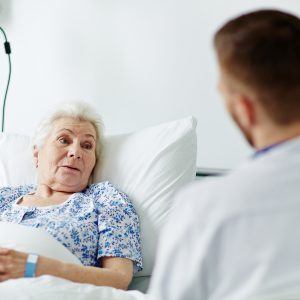Who’s To Choose? How To Treat Older Cancer Patients

Who’s To Choose? How To Treat Older Cancer Patients
August 14, 2019
The projections are sobering: By 2030, it’s anticipated that 70% of all new cancers will occur in patients 65 and older. Moreover, cancer statistics show that among the oldest old (the fastest-growing segment of our population, and encompassing those over 85), cancer patients tend to have more advanced disease at diagnosis and worse outcomes, including survival rates. In this cohort, the most common cancers include lung, prostate, colorectum and breast cancers. And though general guidelines suggest that regular cancer screening be discontinued for patients over age 85, there is growing recognition that life expectancy and physical health rather than biological age should determine who is screened and treated for cancer, and what the treatment parameters should be in advanced age.
But most importantly it seems the overall consensus among oncologists and geriatricians is that screening and treatment of cancer for older patients needs to be an individualized decision process based on honest communication with care providers. There should be no presumption one way or another as to what a particular patient would want- that can only be determined after a robust and candid conversation. With screening, for example, geriatrician Nancy Schoenborn writes in STAT that for many older patients, continued cancer screenings can do more harm than good. According to her research (published in The Gerontologist), not all patients want to discuss life expectancy but they worry that their physicians are “giving up on them” if the suggestion is made to stop cancer screening. Patients often don’t understand that screening may carry little benefit but may lead to burdensome follow-up tests and treatments and even psychological stress from false positives. So before you or a loved one push for screening, pause a moment and read here.
And if cancer is found in an older patient, should standard treatments, or even experimental treatments, be automatically provided? One challenge is that there is simply not enough data to determine how standardized cancer treatments may perform in older patients. A recent post in Medscape pointed out that even as cancer is increasingly an older person’s disease, clinical trials are failing to enroll older patients to determine the safety and efficacy of new treatments. Oncologist William Dale has advocated for engaging and including older cancer patients in determinations of the best treatment course, “not just listening to a relative who feels strongly one way or another.” That sentiment was echoed in a recent piece by Jane Brody in The New York Times when she revealed that her own goals of care may have unduly influenced the treatment for her late husband in his final weeks of cancer treatment. Brody emphasized that patients need to understand the personal and financial costs of treatment and their choices must be based on honest and factual advice. So, the best advice if you or a loved one are facing cancer? Candid and informed communication about the benefits and burdens of treatment is the place to start.







